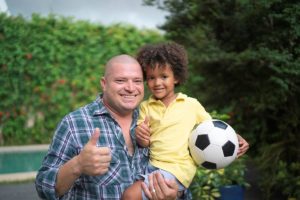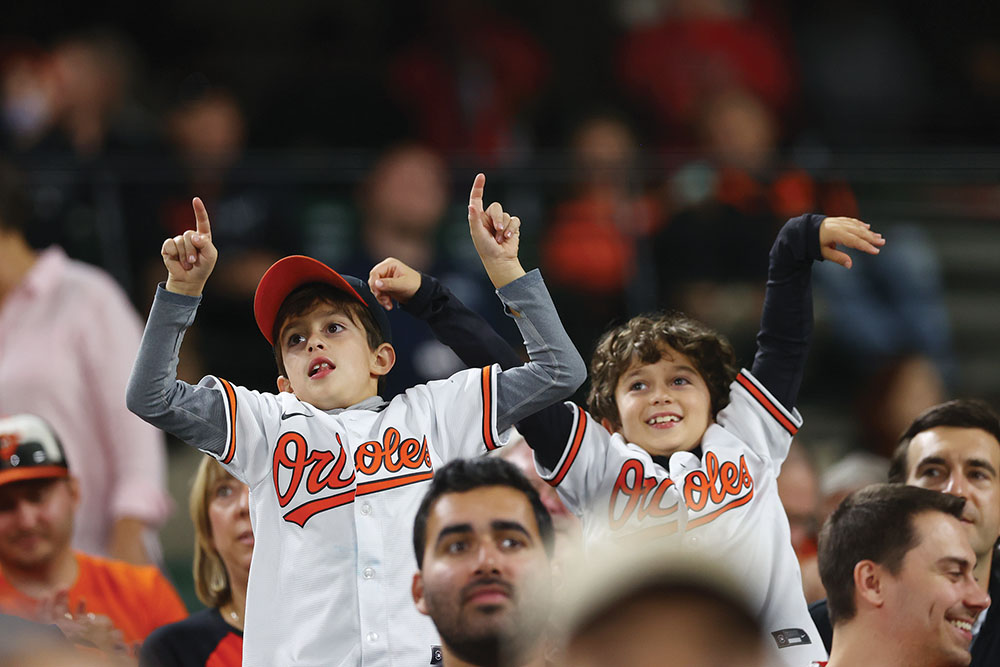My father was outspoken. He offended people. His heart was too big and too fierce for most people, and he died by the time he was 50, when I was just 22.
Some people thought he might have lived a bit longer if he could have “calmed down a bit.” People didn’t always think that he was very nice. I think somehow, subconsciously, I have spent a good bit of my life thinking that I needed to moderate the wild truth-telling genes in myself, that if I was a bit “nicer,” maybe life would be easier for me and my immigrant family in America.

Subliminally I learned not to make suburban soccer sideline small talk awkward, to save my son from the kind of embarrassment I would often feel when my father would call out injustice or prejudice in “polite” company. Somewhere along my journey from my life in an Irish immigrant enclave in England and the blue-collar communities of my faraway youth to home ownership in Maryland’s suburbs, somewhere on my way up I-83 from teaching high school in East Baltimore to my home in Cockeysville, I had subconsciously succumbed to the unspoken rules of keeping life pleasant in “the land of pleasant living.”
I did not want to be the one to ruin the Super Bowl party by talking about race, class, educational apartheid or politics. I did not want to spoil someone’s escapist afternoon at the pool by musing about how unfair it was that the black and brown kids in the apartments across the street had no pool to go to. People don’t always think it’s nice of me to believe that it is a good thing that our schools are becoming more diverse.
But my Guatemalan son is brown. We speak Spanish. When, I casually tell him in the grocery checkout line “No, no puedes comprar chocolate,” often enough someone will audibly pass comment that people who come to this country should learn to speak English.
And as I angrily stand there, trying to find the best way to scold people for their ignorance, without humiliating my son, I am usually told some version of the fact that I am not being nice. When I tell my son not to accept the casual use of ethnic slurs in his company, much less the “nicknames” that he gets, other adults will again tell me that I am not being nice.
It’s not nice to talk about race at all, they reason, because if we stopped talking about race then it would stop being a problem. It’s the talking about it that has made it a problem, or so I am told. Meanwhile I am at home thinking about the “nicest” way possible to tell the parent of a child on my son’s baseball team that it’s really not nice at all to threaten to “build a wall” around my son next time he misses a catch on second base.
Brené Brown calls this a “vulnerability hangover,” the odd red-faced, self-doubt-infused, dizziness that consumes me and leaves me feeling righteous, ashamed and totally alone all at the same time when I speak up about difficult things. It has become a common feeling.
But it dawns on me, as the saying goes, our kids do as we do, not as we say. As the father of a child of color, it will not serve me well to just tell him how to act: I need to remember to act as he will need to, to stop compromising his own success and safety for the comfort of others. Always.
He’ll need to get good at it, because one day he might be a father, too. His children will probably be brown, and I hope they’ll speak at least a couple of languages. So, I will share with him the best of my father. He wasn’t always what everyone would call nice. But he was good and fair, a truth teller and an advocate. Courage isn’t about not being scared, it’s being scared but doing what’s right anyway. I want to be more like my father in this way, and I want to be someone that my son wants to be like — not because I’m nice, but because I wasn’t scared to not be.
Fatherhood isn’t nice. No, it’s way better than that.








